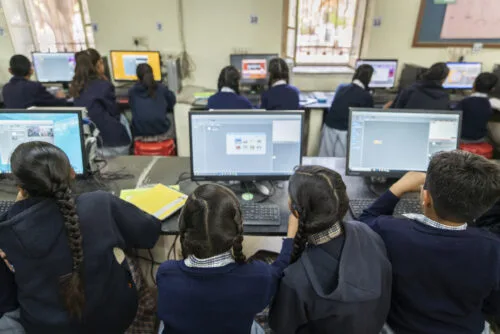At the Raspberry Pi Foundation, our mission is to enable young people to realise their full potential through the power of computing and digital technologies. One way we achieve this is through supporting a global network of school-based Code Clubs for young people, in partnership with organisations that share our mission.
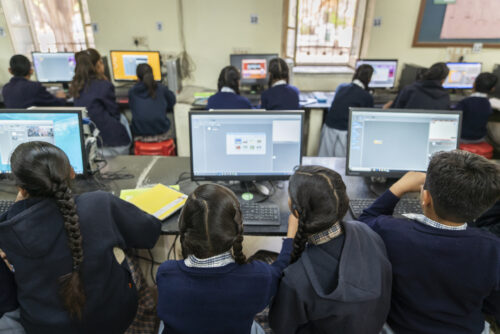
For the past couple of years we have been working with Mo School Abhiyan, a citizen–government partnership that aims to help people to connect, collaborate, and contribute to revamping the government schools and government-aided schools in the Indian state of Odisha. Together with Mo School Abhiyan we have established many more Code Clubs to increase access to computer science education, which is an important priority in Odisha.
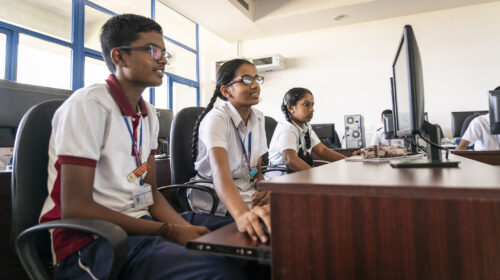
We evaluate all of our projects to understand their impact, and this was no exception. We found that our training improved teachers’ skills, and we learned some valuable lessons — read on to find out more.
Background and aims of the project
After some successful small-scale trials with 5 and then 30 schools, our main project with Mo School Abhiyan began in August 2021. In the first phase, between August 2021 and January 2022, we aimed to train 1000 teachers from 1000 schools.
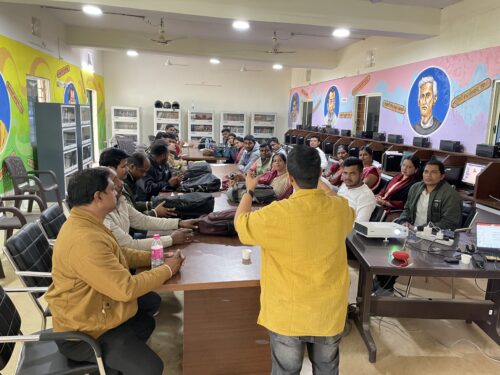
For a number of reasons, including coronavirus-related school closures, not all teachers were able to complete their training during this phase. Therefore we revised the programme, splitting the teachers in two groups depending on how far they had progressed with their initial training. We also added more teachers, so our overall aim became to support 1075 teachers to complete their training and start running clubs in 2022.
Our training and ongoing support for the teachers
We trained the teachers using a hybrid approach through online courses and in-person training by our team based in India. As we went along and learned more about what worked for the teachers, we adapted the training. This included making some of the content, such as the Prepare to run a Code Club online course, more suitable for an Indian context.
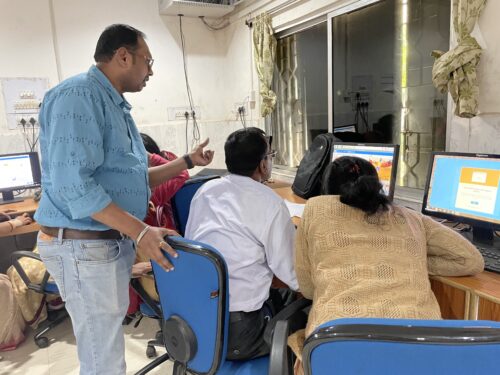
As most of the teachers were not computing specialists but more often teachers of other STEM subjects, we decided to focus the training on the basics of using Scratch programming in a Code Club.
We continue to provide support to the teachers now that they’ve completed their training. For instance, each Friday we run ‘Coding pe Charcha’ (translating to ‘Discussion on Coding’) sessions online. In these sessions, teachers come together, get answers to their questions about Scratch, take part in codealongs, and find out on how their students can take part in our global technology showcase Coolest Projects.
Measuring the impact of the training
To understand the impact of our partnership with Mo School Abhiyan and learn lessons we can apply in future work, we evaluated the impact of the teacher training using a mixed-methods approach. This included surveys at the start and end of the main training programme, shorter feedback forms after some elements of the training, and follow-up surveys to understand teachers’ progress with establishing clubs. We used Likert-style questions to measure impact quantitatively, and free-text questions for teachers to provide qualitative feedback.
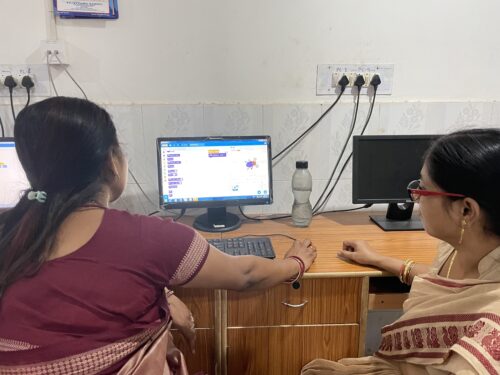
One key lesson early on was that the teachers were using email infrequently. We adapted by setting up Whatsapp groups to keep in touch with them and send out the evaluation surveys.
Gathering feedback from teachers
Supported by our team in India, teachers progressed well through the training, with nine out of every ten teachers completing each element of the training.
Teachers’ feedback about the training was positive. The teachers who filled in the feedback survey reported increases in knowledge of coding concepts that were statistically significant. Following the training, nine out of every ten teachers agreed that they felt confident to teach children about coding. They appeared to particularly value the in-person training and the approach taken to supporting them: eight out of every ten teachers rated the trainer as “extremely engaging”.
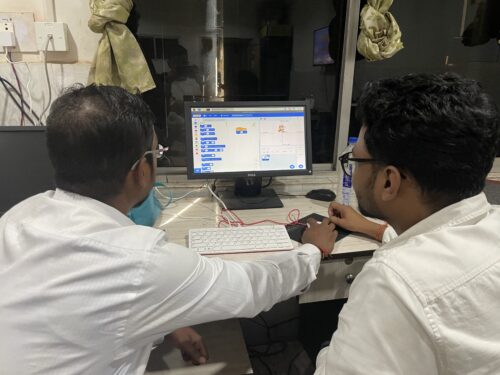
The teachers’ feedback helped us identify possible future improvements. Some teachers indicated they would have liked more training with opportunities to practise their skills. We also learned how important it is that we tailor Code Club to suit the equipment and internet connectivity available in schools, and that we take into account that Code Clubs need to fit with school timetables and teachers’ other commitments. This feedback will inform our ongoing work.
The project’s impact for young people
In our follow-up surveys, 443 teachers have confirmed they have already started running Code Club sessions, with an estimated reach to at least 32,000 young people. And this reach has the potential to be even greater, as through our partnership with Mo School Abhiyan, teachers have registered more than 950 Code Clubs to date.
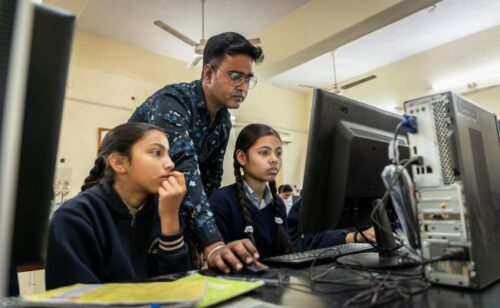
Supported by the teachers we’ve trained, each of the young people attending these Code Clubs will get the opportunity to learn to code and create with technology through our digital making projects. The projects enable young people to be creative and to share their creations with each other. Our team in India has started visiting Code Clubs to better understand how the clubs are benefiting young people.
What’s next for our work in India
The experience we’ve gained through the partnership with Mo School Abhiyan and the findings from the evaluation are helping to inform our growing work with communities in India and around the world that lack access to computing education.
In India we will continue to work with state governments and agencies to build on our experience with Mo School Abhiyan. We are also exploring opportunities to develop a computing education curriculum for governments and schools in India to adopt.
If you would like to know more about our work and impact in India, please reach out to us via india@raspberrypi.org.
Website: LINK

